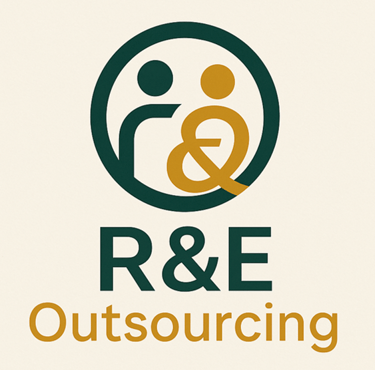Record and Entry (R&E) Outsourcing
Anti-Money Laundering (AML) and Counter-Terrorist Financing (CTF) Policy
Purpose
The purpose of this combined Anti-Money Laundering (AML) and Counter-Terrorist Financing (CTF) Policy is to set out the principles, controls, and responsibilities necessary to prevent R&E Outsourcing from being used for money laundering, terrorist financing, or other financial crimes. This policy ensures compliance with:
The UK’s Money Laundering, Terrorist Financing and Transfer of Funds Regulations 2017 (as amended).
The Proceeds of Crime Act 2002 (POCA).
The Terrorism Act 2000.
Relevant EU Directives and international best practices.
Scope
This policy applies to:
All employees (permanent, temporary, and contract).
Directors and senior management.
Consultants, contractors, and third-party partners acting on behalf of R&E Outsourcing.
1. Policy Commitment
R&E Outsourcing is committed to:
Preventing its services from being used to facilitate money laundering or terrorist financing.
Identifying and reporting suspicious transactions is by legal obligation.
Maintaining a culture of integrity, transparency, and compliance.
2. Customer Due Diligence (CDD)
Verify the identity of all clients, partners, and relevant third parties before establishing a business relationship.
Apply Enhanced Due Diligence (EDD) in higher-risk situations, such as dealing with politically exposed persons (PEPs), high-risk jurisdictions, complex ownership structures, or transactions involving large sums of cash.
Conduct ongoing monitoring to ensure customer information remains accurate and up to date.
3. Risk Assessment
Assess AML and CTF risks for all new and existing clients.
Consider factors such as client profile, country of operation, nature of transactions, and funding sources.
Categorise clients into low, medium, or high risk, and apply proportionate controls.
Review and update risk assessments regularly.
4. Record Keeping
Maintain CDD and transaction records for at least five years after the end of the business relationship.
Ensure records are accurate, secure, and readily retrievable for regulatory inspection.
5. Monitoring and Reporting
Monitor transactions for unusual, complex, or suspicious patterns.
Identify potential indicators of money laundering, such as inconsistent transaction behaviour or unexplained sources of funds.
Identify potential indicators of terrorist financing, such as small but frequent transfers to high-risk jurisdictions or transactions linked to sanctioned entities.
Report suspicious activity immediately to the appointed Money Laundering Reporting Officer (MLRO).
The MLRO will review and, if appropriate, submit a Suspicious Activity Report (SAR) to the UK’s National Crime Agency (NCA).
6. Training and Awareness
Provide regular AML and CTF training to all employees to ensure awareness of legal obligations, detection methods, and reporting procedures.
Include case studies and practical examples to improve the identification of suspicious activities.
Maintain detailed records of training sessions completed.
7. Responsibilities
Money Laundering Reporting Officer (MLRO) – Oversees AML and CTF compliance, maintains records, and ensures timely reporting to authorities.
Employees – Must comply with this policy and report any suspicious activity without delay.
8. Non-Compliance
Failure to comply with this policy may result in:
Disciplinary action, including possible termination of employment or contract.
Civil or criminal prosecution under applicable laws.
Record and Entry (R&E) Outsourcing
Website: www.recordandentry.com
Email: info@recordandentry.com
Telephone: +44 208 145 3355
Address: Ability House, 121 Brooker Road, Waltham Abbey, Essex, EN9 1JH, United Kingdom
Owned and operated by: Outsource Professional Directors (OPD) Limited
Director: Sarah Santeng
Responsible for Policies and Statements: Sarah Santeng
Email: info@recordandentry.com
Address
Subscribe
Telephone: +44 208 145 3355
Contact Us
Ability House, 121 Brooker Road, Waltham Abbey, EN9 1JH, UK
Social Media
©2025 All Rights Reserved by Outsource Professional Directors (OPD) Limited trading as Record and Entry (R&E) Outsourcing
